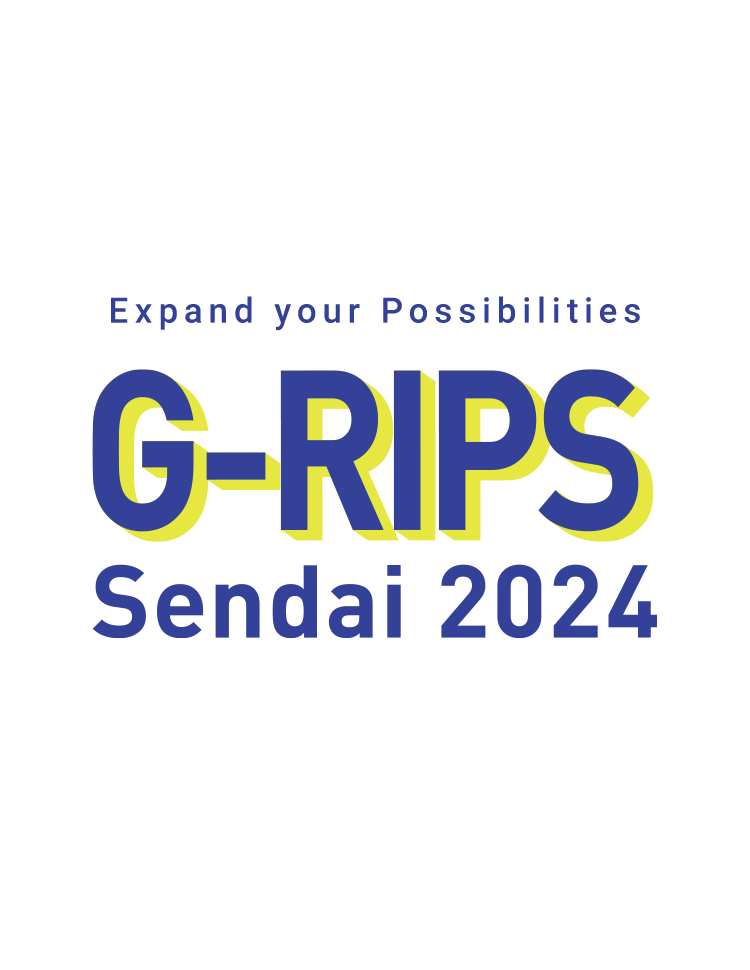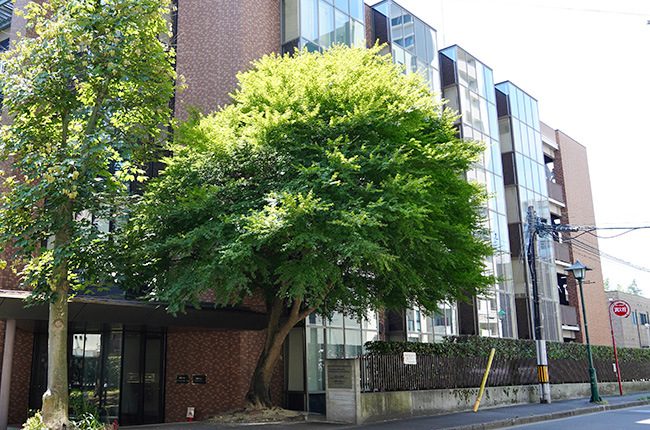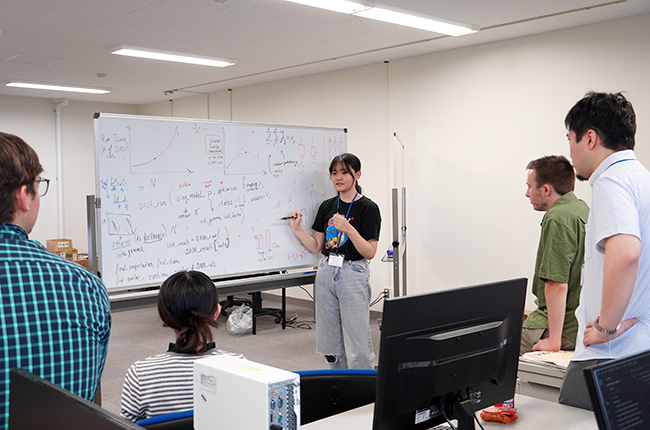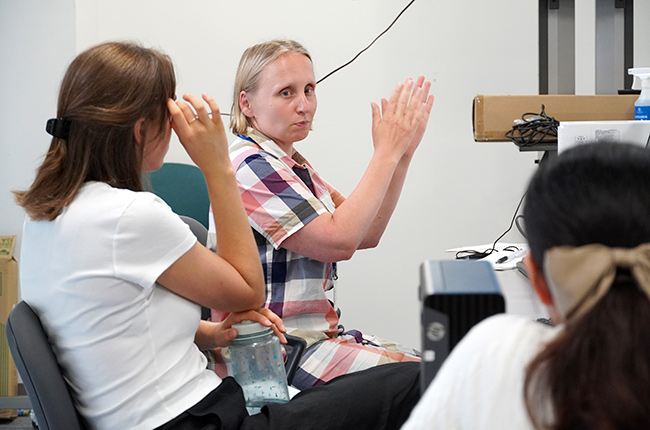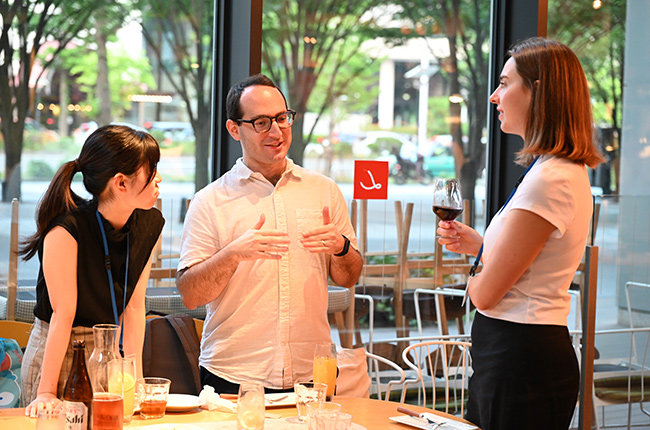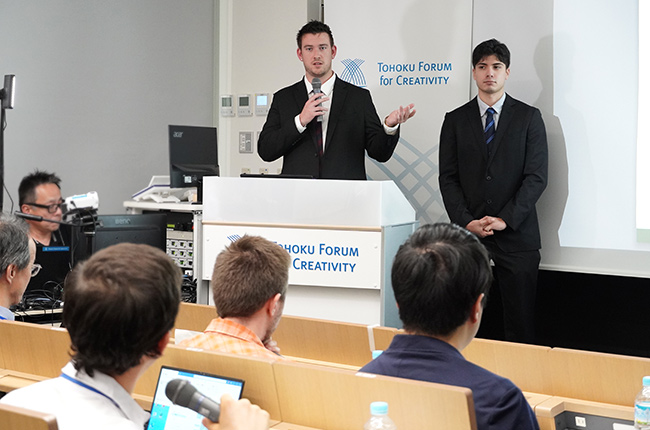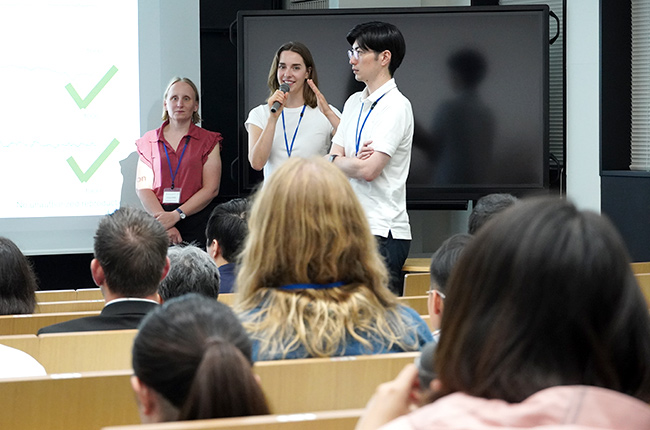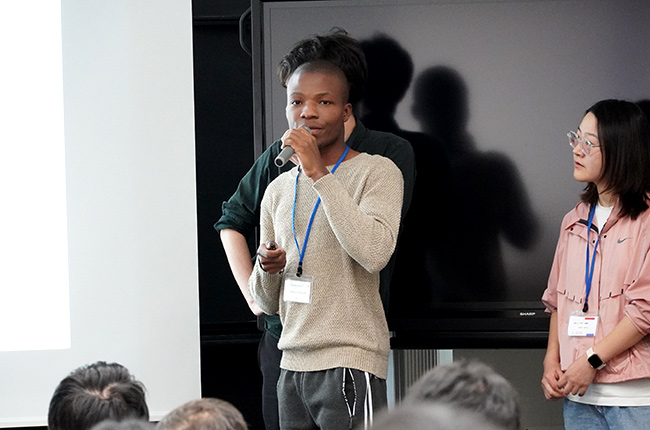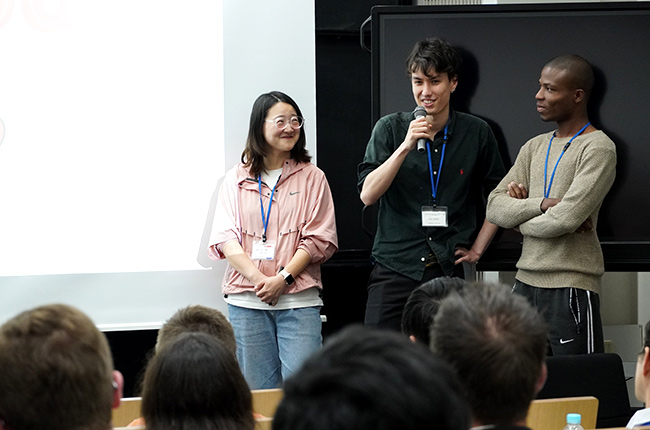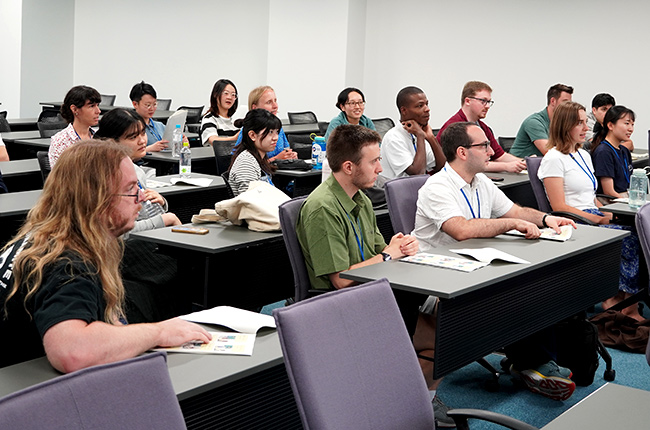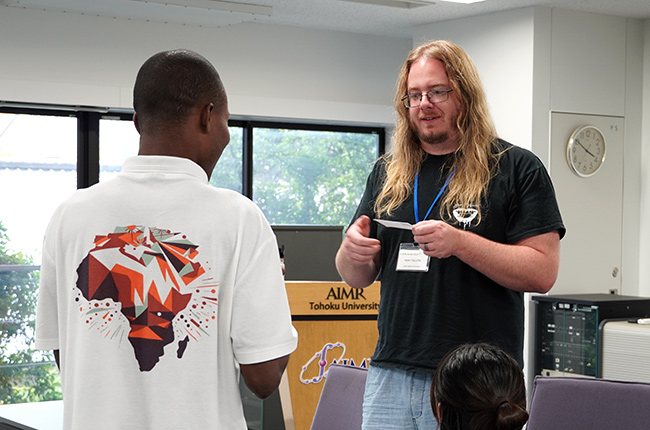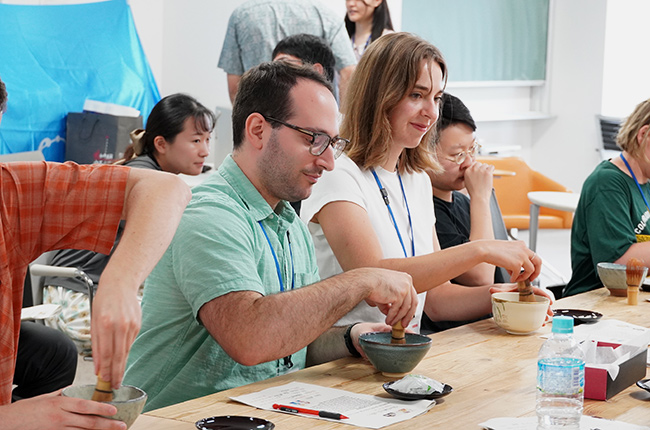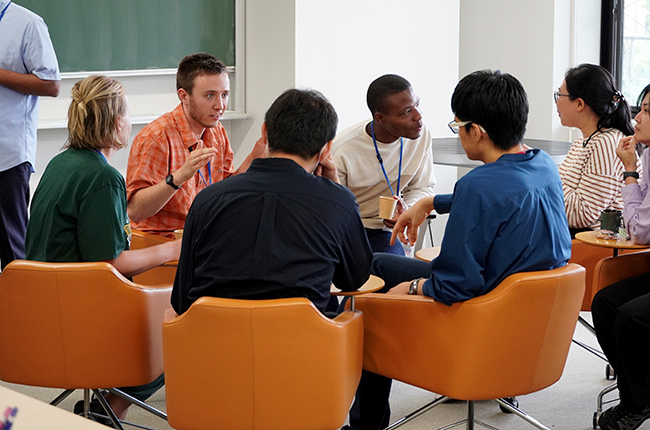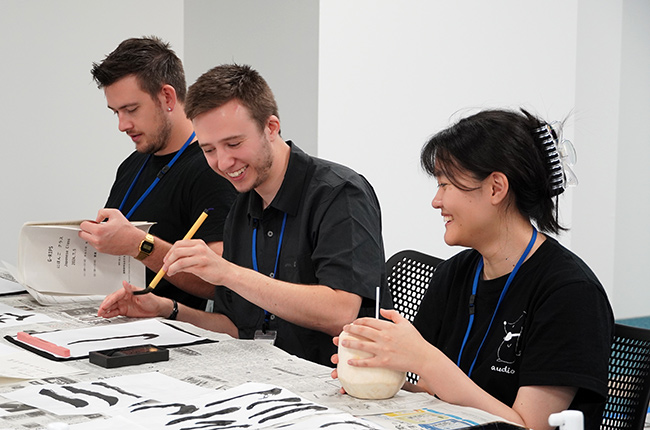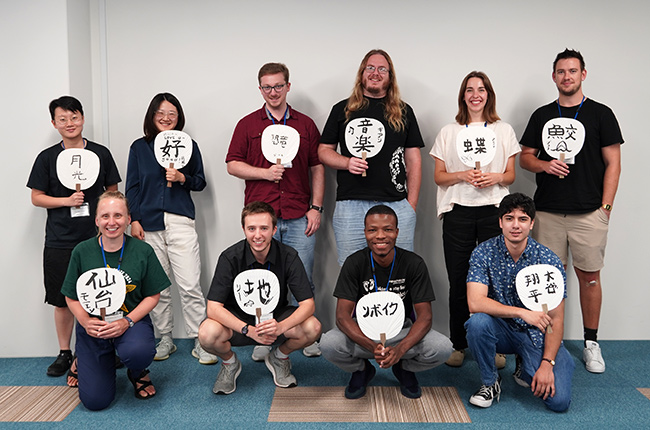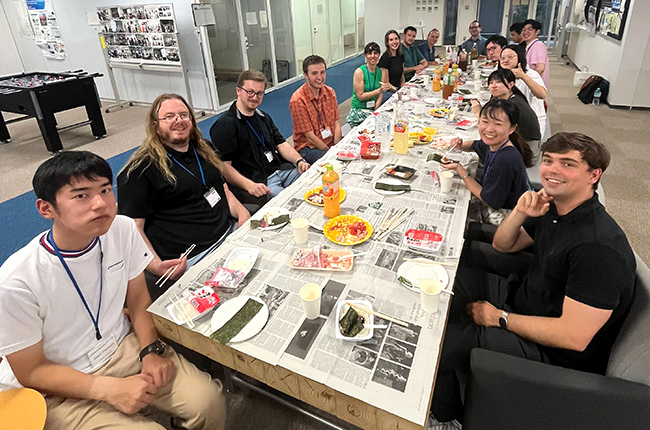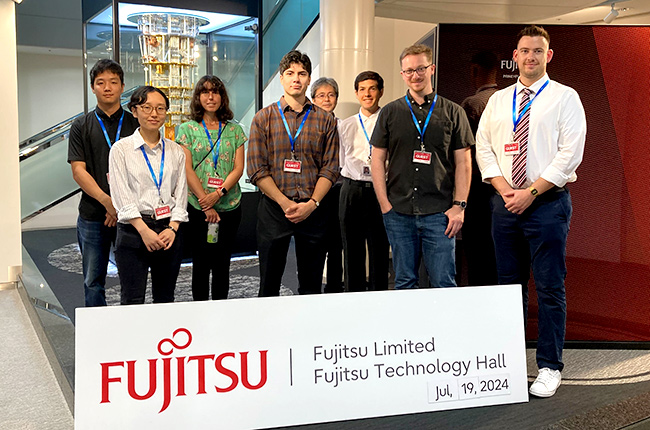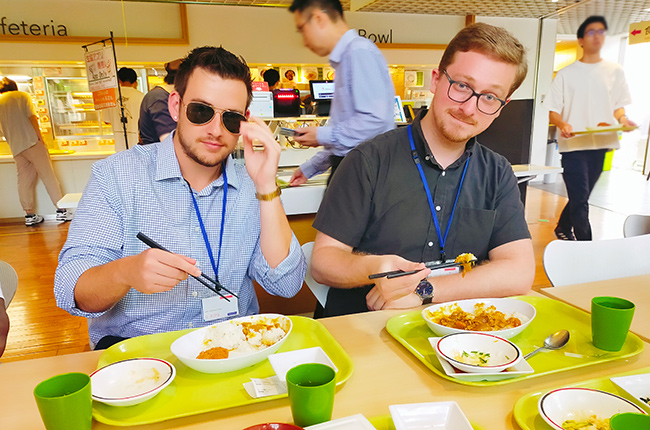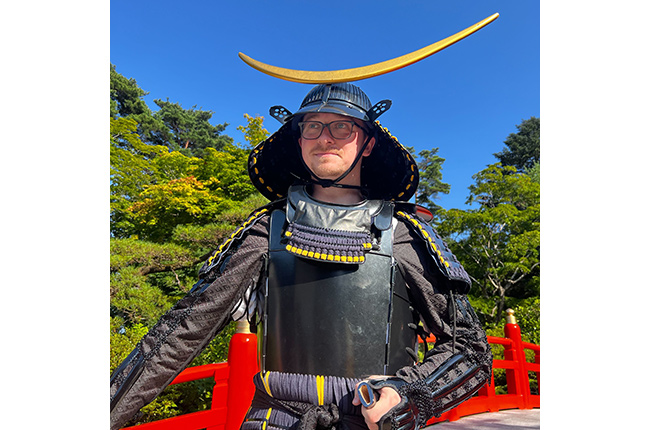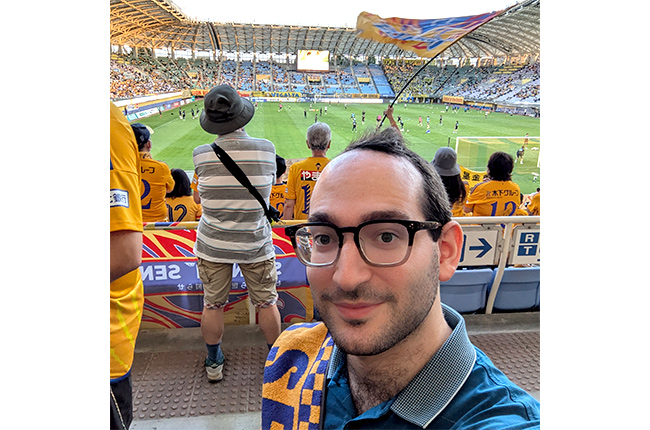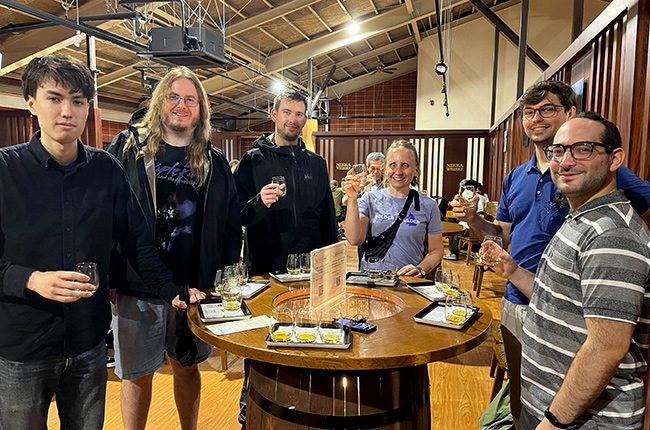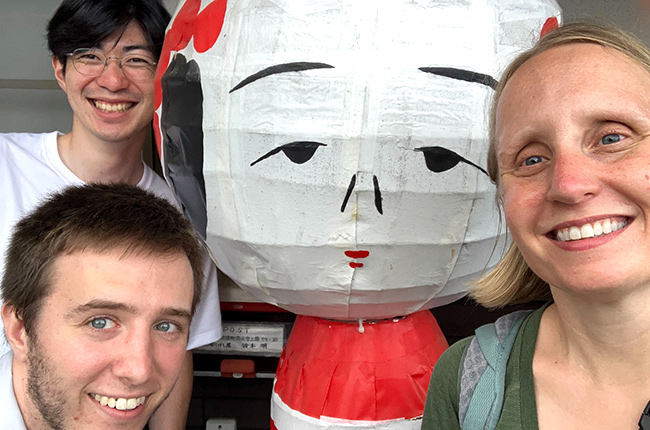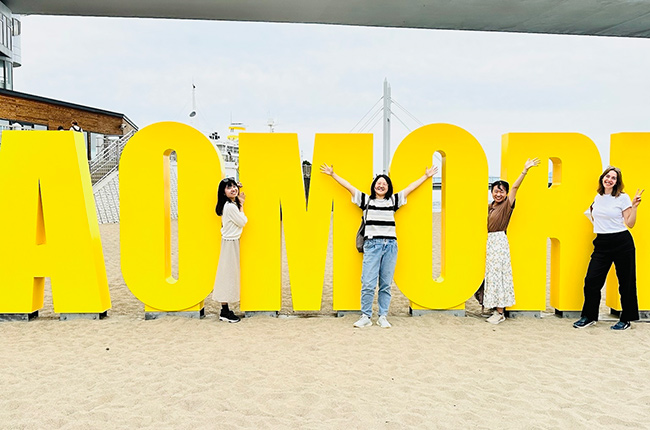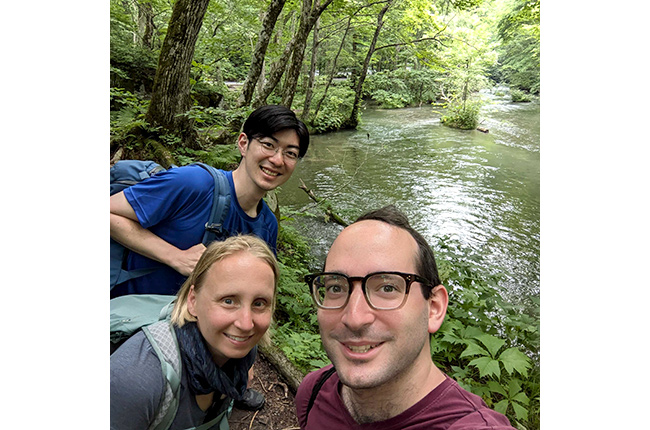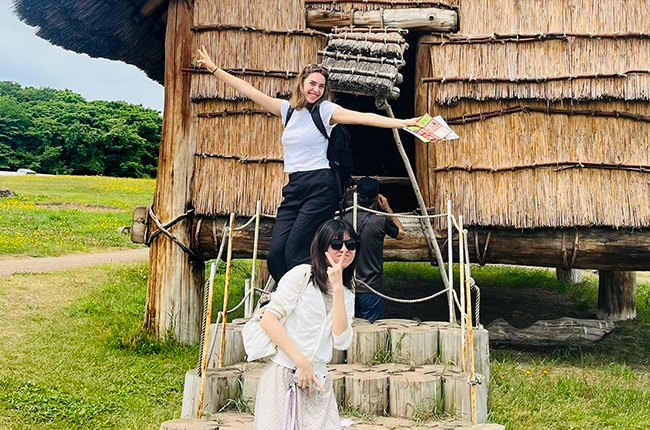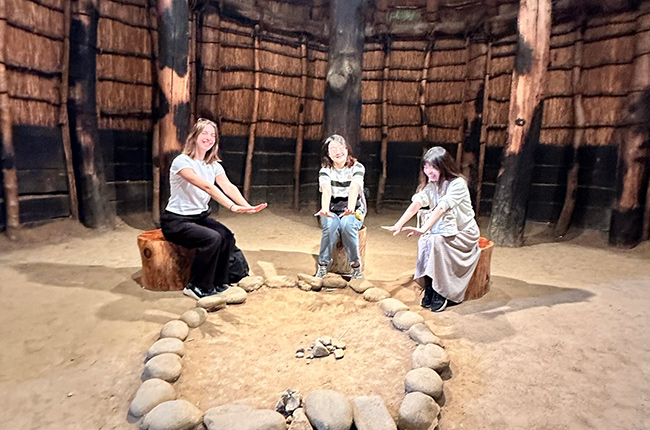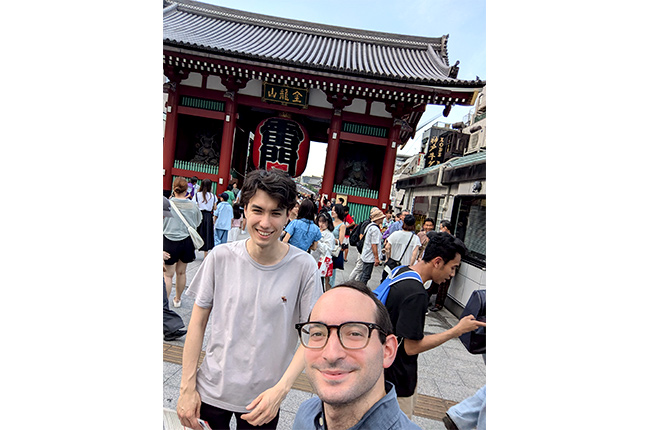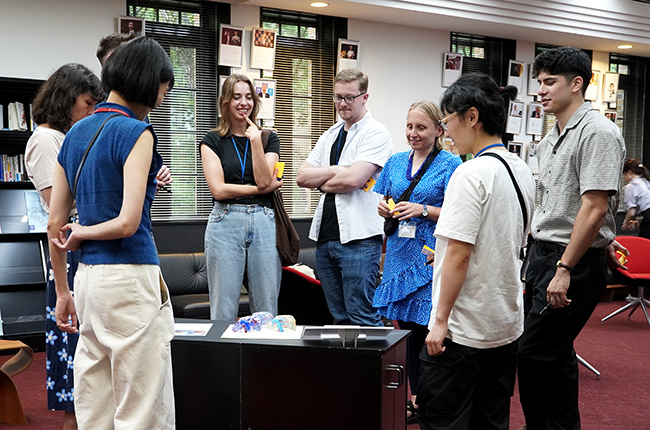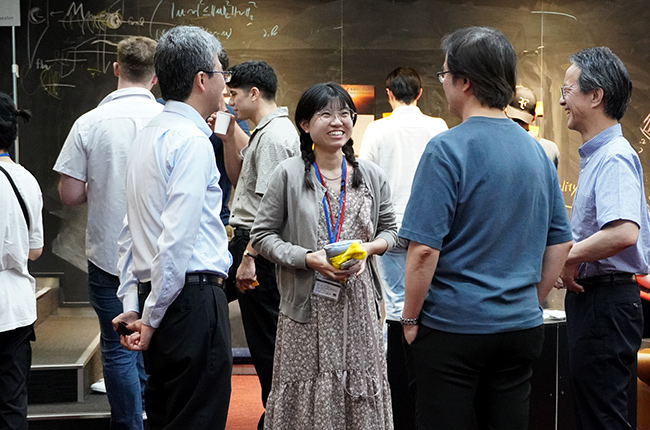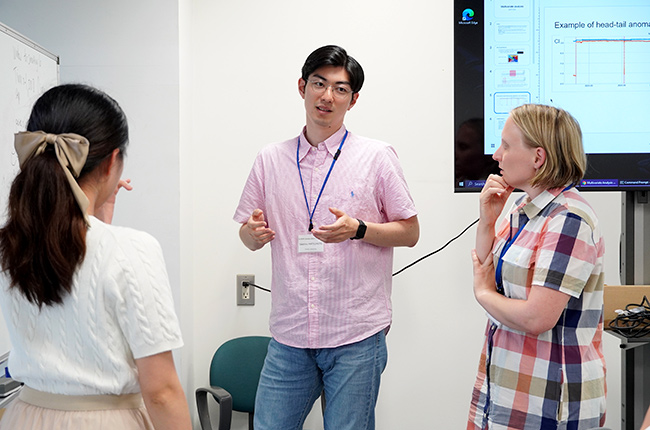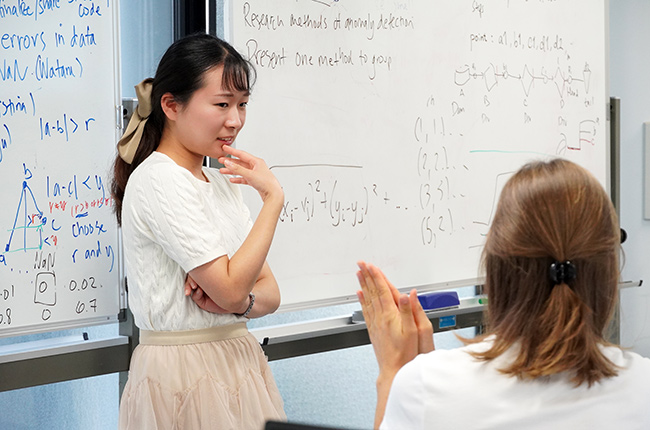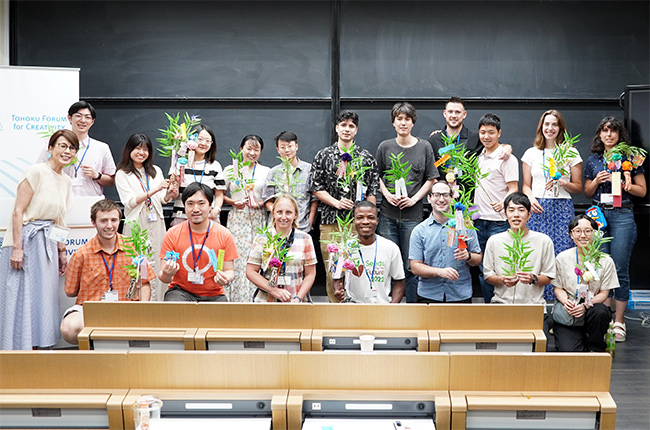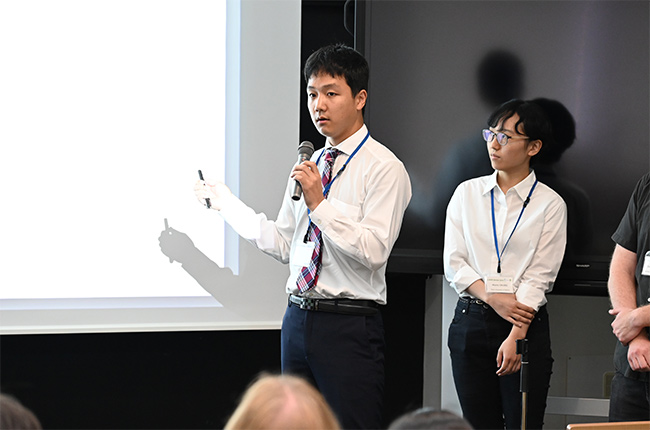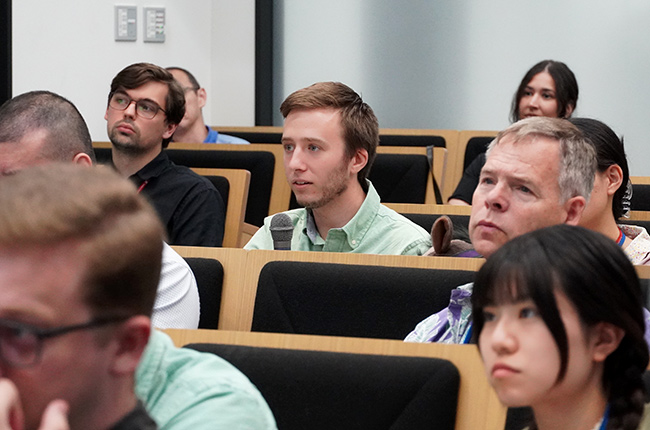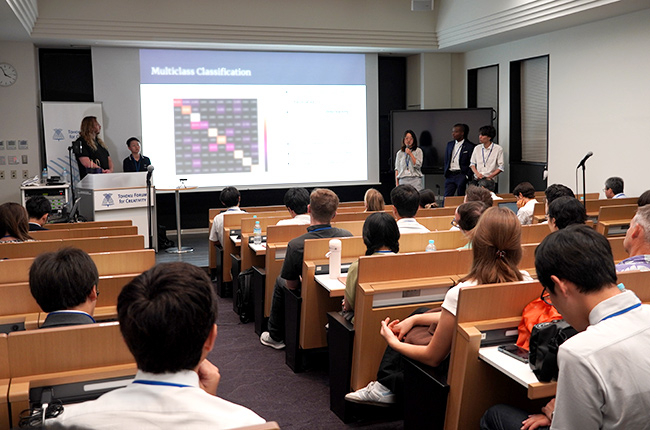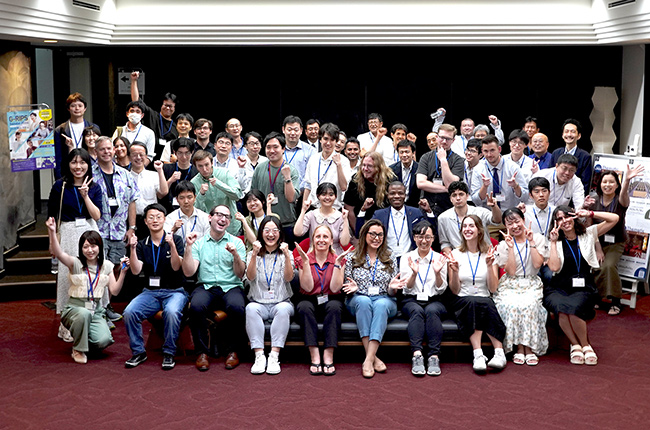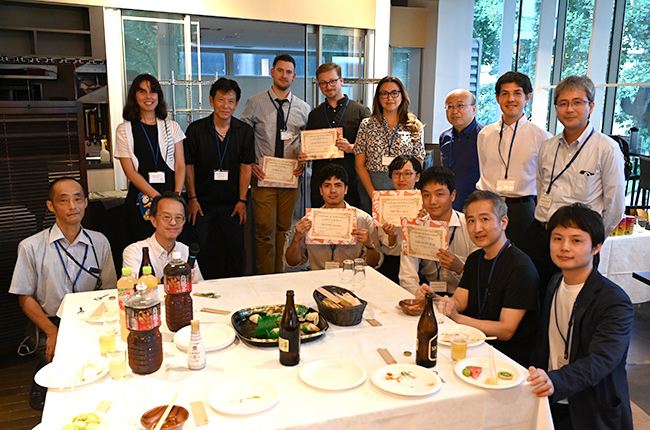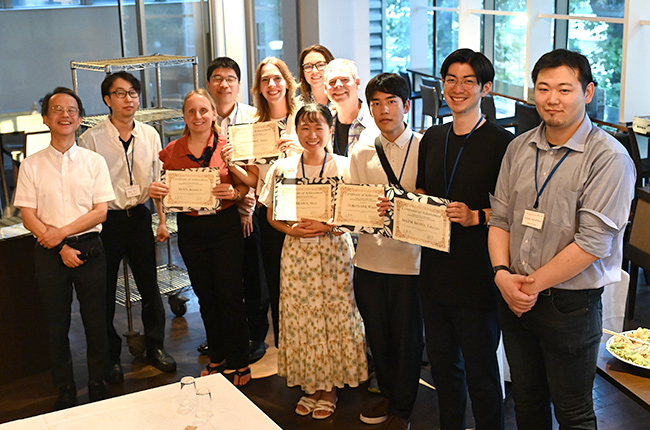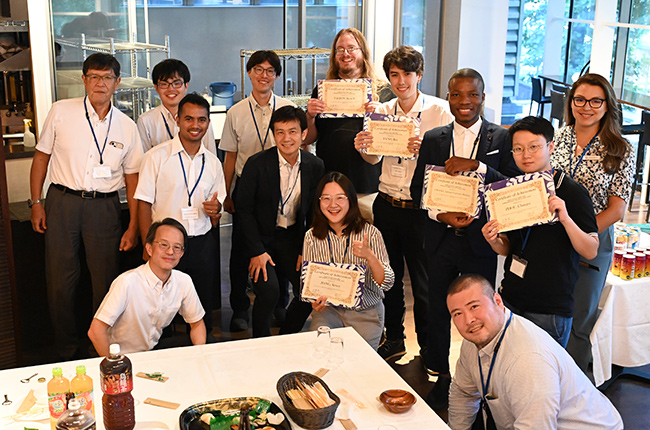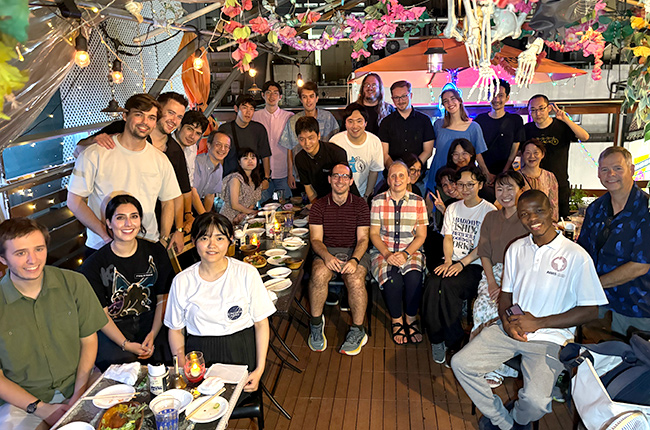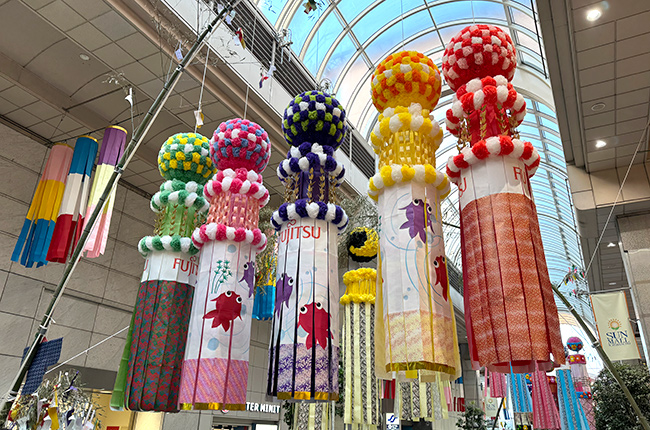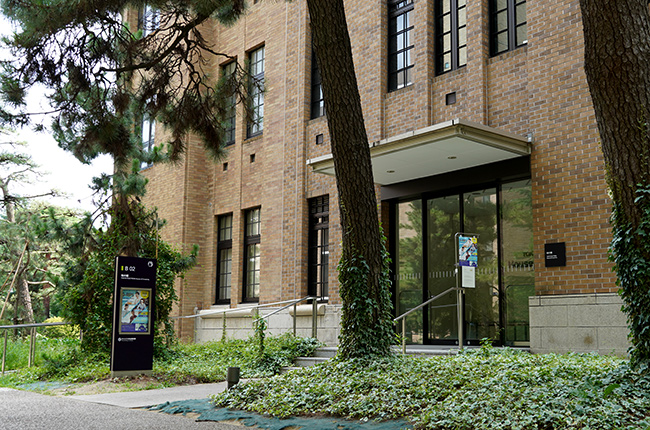Outline
| Period | June 18th to August 8th, 2024 (7.5 weeks) |
|---|---|
| Venue | Advanced Institute for Materials Research (AIMR), TOKYO ELECTRON House of Creativity |
| Number of Participants | 8 students from the US, one from Africa, and 11 from Japanese universities |
| Industrial Partners | Fujitsu Limited, IHI Corporation, Mitsubishi Electric Corporation |
| Host | Mathematical Science Center for Co-creative Society (MathCCS), Tohoku Forum for Creativity (TFC), Advanced Institute for Materials Research (AIMR) |
| Co-host | RIKEN Interdisciplinary Theoretical and Mathematical Sciences Program (iTHEMS), Institute for Pure & Applied Mathematics (IPAM) |
Information related to programs offered by IPAM can be found at “Student Research Programs.”
Projects
PROJECT02
IHI Corporation
Resilient water management modeling against global warming and for sustainable food supply
PROJECT03
Advanced Technology R&D Center,
Mitsubishi Electric Corporation
Exploration of useful geometric structures for object recognition using point clouds
PROJECT04
Information Technology R&D Center,
Mitsubishi Electric Corporation
Achievable precision with heuristic solvers: quantum algorithms and quantum supremacy
Program Schedule

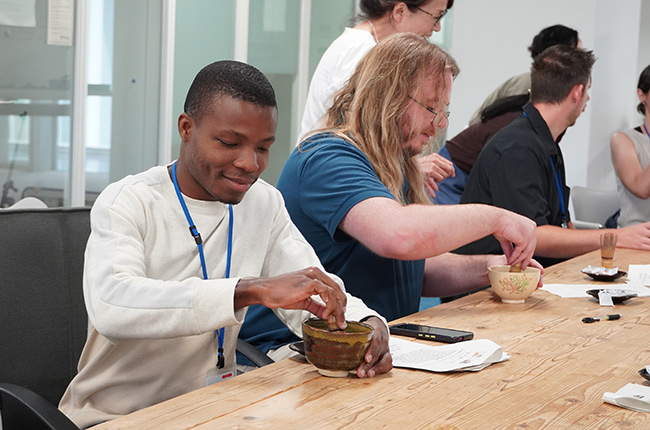
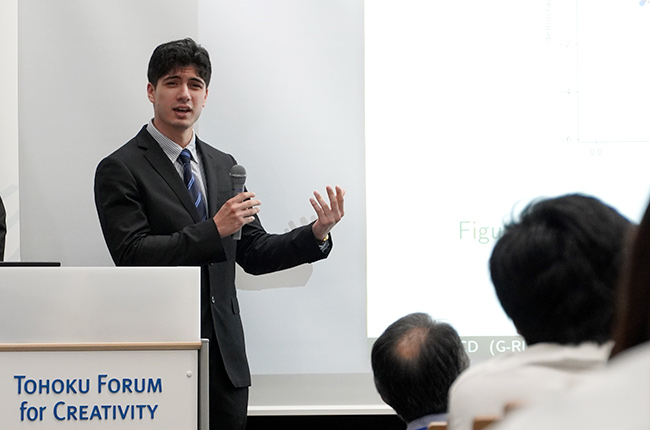
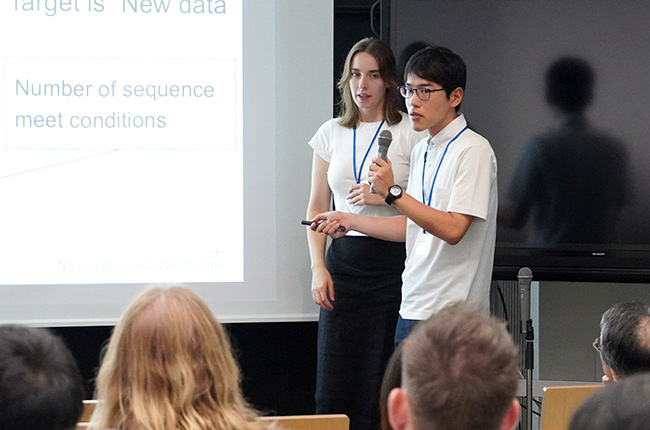
Opening Day
Representatives from each partner company pose an interesting problem related to their industry, as well as the motivation to seek a solution. After the explanation, each team meets with the industry experts to discuss different ideas of how to tackle the problem.
Work Statement
Ideas discussed with both industry and academic mentors, the available and necessary resources for prospect solutions, and consideration of each team member's skills, are compiled into a plan of action called the Work Statement.
Starting the Research
Once our industry partners approve the Work Statement, students get started on a journey to achieve their proposed solutions. Students work intensively 5 days a week, but they are not alone! Dedicated industry mentors from our partner's companies, as well as young Tohoku faculty and researchers, are available to provide resources and guidance when needed.

Japanese Language / Culture Classes
Japanese Language and Culture Classes are held during the program, each week offering a different learning experience. Students participate in introductory Japanese language and culture classes, learning useful conversational skills and facts about Sendai. Activities such as tea ceremony, calligraphy, and making Tanabata decorations further enhance students introduction to Japan.

Midterm Presentations
Each team member gives a presentation on their research progress in English. After the presentations, team mentors and team members meet to discuss and refine their current progress towards the proposed solutions.

Site Visits
Team members visit our partner's companies to gain new insight on the motivations for their project. Students learn about our partner's resources and facilities, broadening their understanding of the problem's importance. Active discussion of the project's direction takes place.
Final Stages of Research
Research is deepened in preparation for Project's Day (final presentation). With the available resources, motivation, plan of action and progress made, this week is when results take shape. Students are working hard toward their final report.
Final Reports
The results of the research are summarized in the form of a final report shared with our industry partners for final approval.
Project’s Day
Each team presents the results and conclusion of their research in English, introducing novel ideas and posing questions for discussion and future work.


